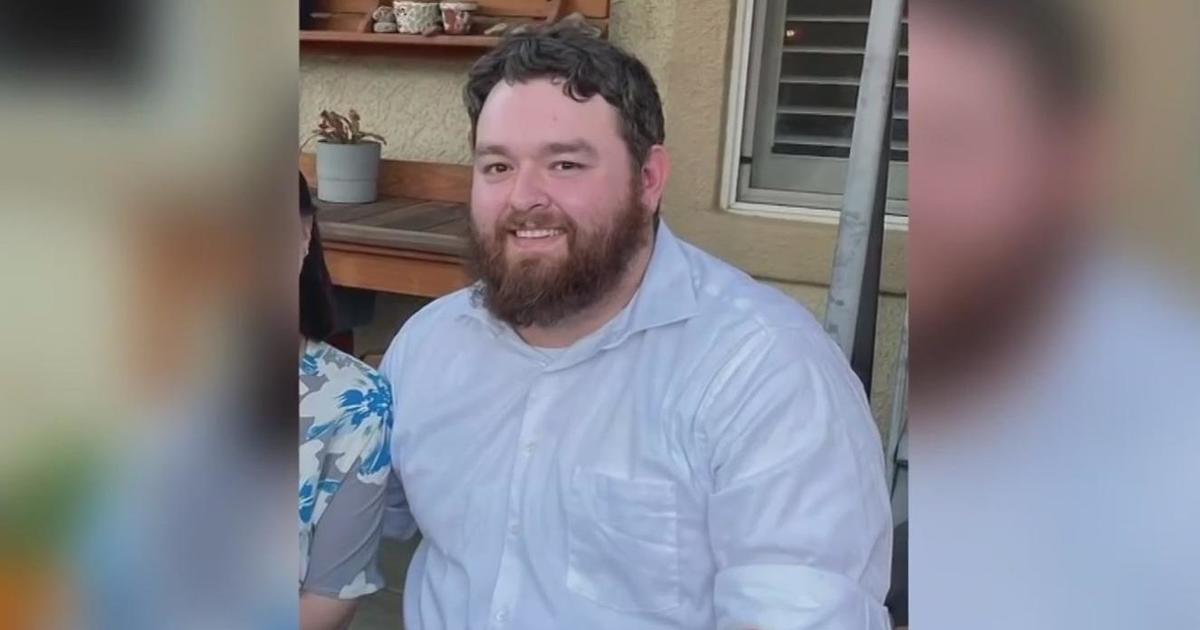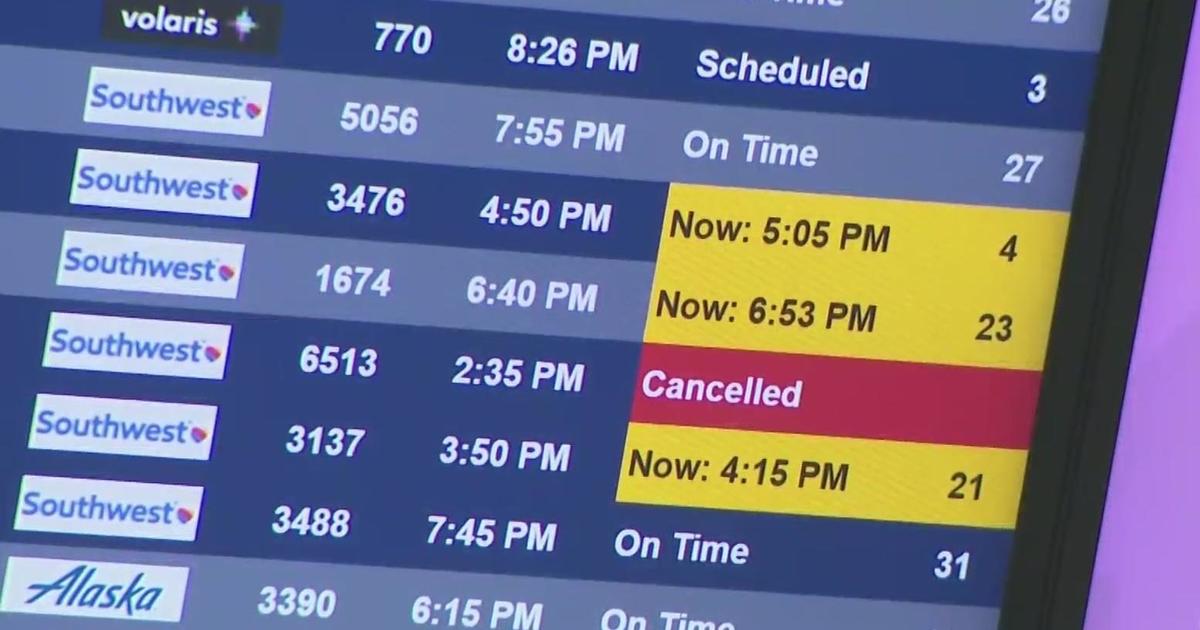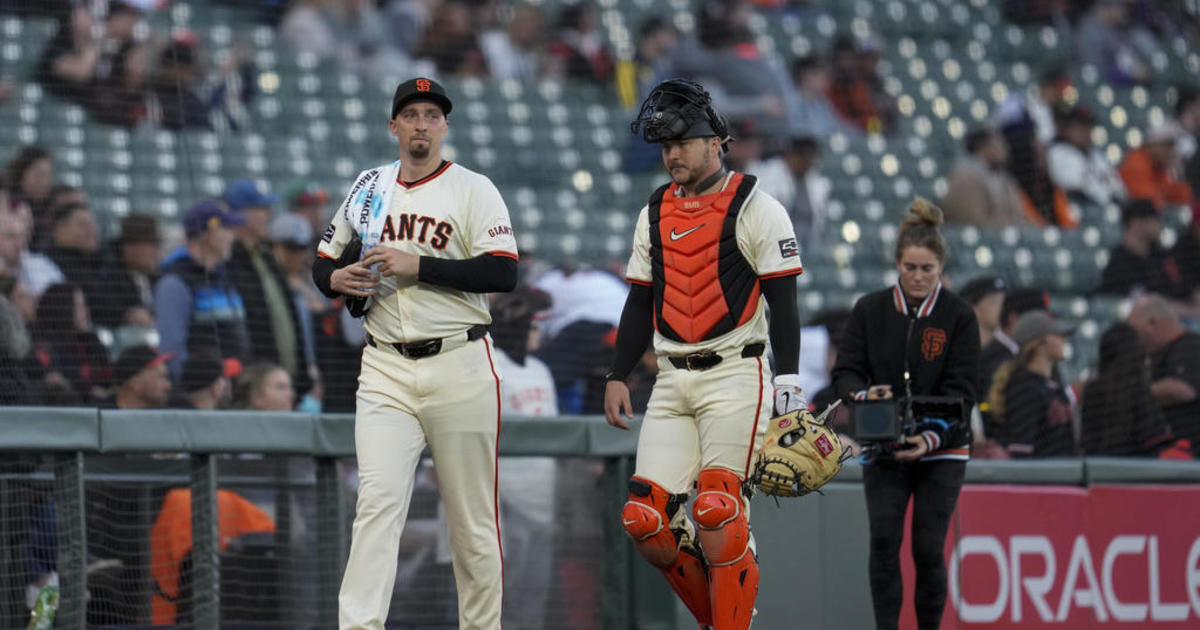HealthWatch: Reno Putting Its Money On Disease Prevention
RENO (CBS 5) - The United States will spend roughly $2.5 trillion this year on health care. Almost three-quarters of that is spent treating chronic diseases like diabetes and heart disease. But now, just across state line in Reno, there is a new approach: the city is putting its money on prevention.
There is an especially good reason for Reno's new approach; Under Nevada law, the so-called "Heart-Lung Bill," if a police officer or firefighter has a cardiovascular event after they have been employed for five years, it's considered to be work related. A single workers comp claim for such an event can easily cost the city $1.5 million.
In an attempt to reduce such claims and improve the health of city employees, Specialty Health, the worker's compensation company that takes care of Reno's injured police and firefighters, has developed a program to assess risk.
"We look at Body Mass Index, blood pressure, smoking history. We look at a basic lipid panel. We look at sugars. We do a metabolic syndrome calculation," said Dr. James Greenwald, with Specialty Health. If there is a suggestion of increased risk, Greenwald said, physicians look further with something called "advanced lipid testing."
Dr. Tara Dall, a Wisconsin-based lipidologist who is working on the Reno project, said it is very important to test for the right things. Many at-risk individuals are missed because of improper tests, she said.
"Half of all people who have cardiovascular events have normal cholesterol levels," said Dall, who recommends checking lipoproteins, the particles in blood that carry cholesterol and triglycerides. She said it's not the passengers (the cholesterol), it's the cars (the particle number) that is most important.
"It's the (lipoproteins) that really define risk," said Dall, adding that lipids give a window into diabetes because they began to change long before sugar levels get elevated.
The screening has paid off in spades – they are finding young, healthy-looking police officers and firefighters who are actually insulin resistant and therefore at high risk for diabetes.
"We know now that we can see Type 2 diabetes coming, in the form of insulin resistance, 15 or 20 years in advance," said Greenwald. "That's when we have to be aggressive, that's when we have to go after these people."
Dall said the lipid tests cost roughly $100. That is money well spent if it identifies insulin resistance and changes the course of so many diseases that have insulin resistance at the root cause: diabetes, heart disease, stroke, sleep apnea, even certain cancers. It is especially money well spent in the context of giant work-related health claims.
Finding insulin resistance is only the first step. The next is reversing it – something Specialty Health hopes to do using a 4-pronged approach based on diet, exercise, weight loss and medication.
"These problems are complex. They're nutrition and lifestyle driven, and so there need to be nutrition and lifestyle solutions to address the problem," said Robb Wolf, author of a book The Paleo Solution. Wolf, who lives in Reno, has also teamed up with the Specialty Health program.
The first behavioral change is diet. Specialty Health prescribes a "Paelo" low-carb diet – with basic foods and nothing processed.
"Certain foods make you sick," said science journalist Gary Taubes. "If you don't eat them you won't be sick, you won't be fat, you won't be pre-diabetic, or diabetic, you won't get heart disease."
Exercise is another important consideration when treating insulin resistance. Exercise raises the HDL (good) cholesterol and promotes insulin sensitivity in muscle.
Weight loss, even just 5% of body weight, can have a significant impact on metabolism – especially dangerous belly fat.
And in some cases, Specialty Health prescribes medication, such as Metformin, which promotes insulin sensitivity and fights the progression of insulin resistance and/or the development of Type 2 diabetes.
Taubes is excited by developments in Reno. "When people realize how it works and how well it works, that will begin to change the public health approach, the clinical approach to this obesity epidemic."
So far, the approach seems to be working for Reno Police and Fire, and now casinos are interested in adopting it for their employees.
Bruce MacKay, who is with Eldorado Hotel and Casino, says it helps business if healthy people work with customers. MacKay said that over the last 10 or 15 years his business had seen a gradual increase in the number of employees with diabetes and obesity. So now the casino is implementing the prevention program.
"If we can stop even one heart attack, it's going to pay for the program," said MacKay.
For more information, visit http://www.liposcience.com/about/
(Copyright 2012 by CBS San Francisco. All Rights Reserved. This material may not be published, broadcast, rewritten, or redistributed.)



